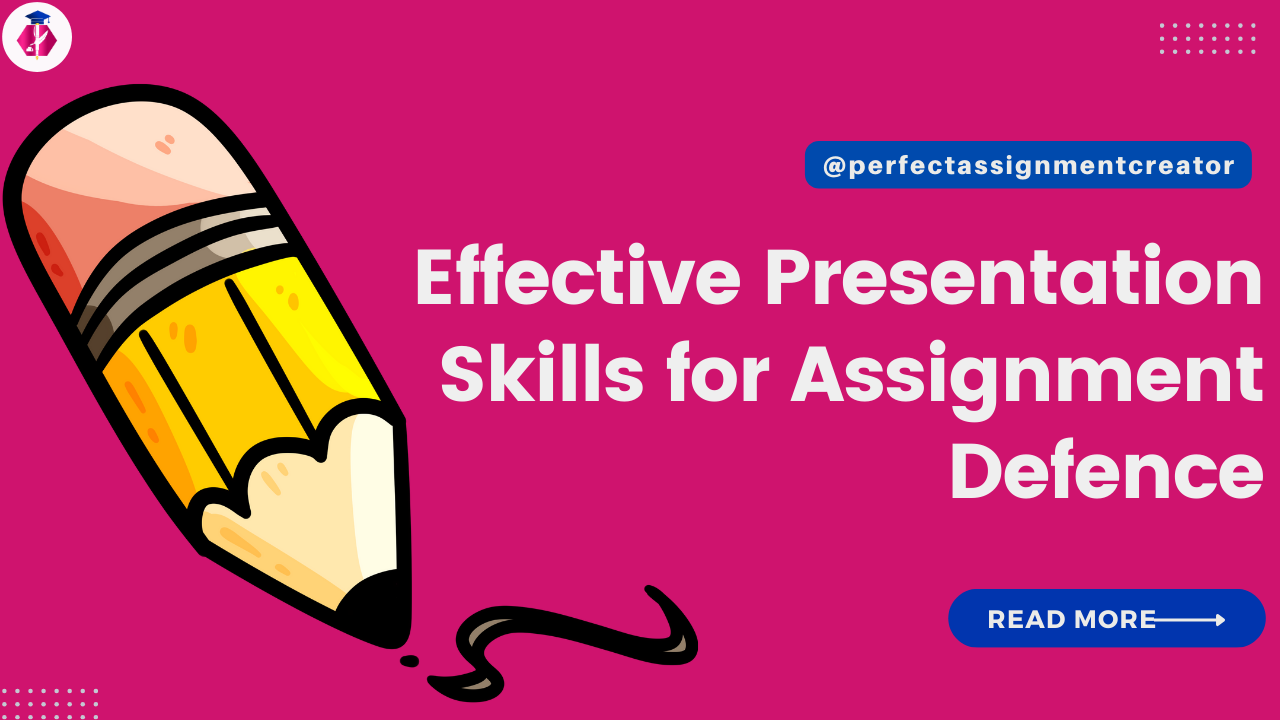Understanding the Value of Presentation Skills
It is essential to have excellent verbal and written communication skills in contexts outside of the classroom. In professional settings, good communication may have an impact on the success of projects, team cooperation, and career progression. The assignment defence allows students to develop their public speaking abilities early on.

How do you start a presentation assignment? Presentation tips
- Structuring the Presentation
Before beginning the presentation itself, it is crucial to create a clear and logical structure that guides the audience through the content. A well-structured presentation not only helps the audience comprehend but also demonstrates the presenter’s organisation and preparation. Typically, the structure has the following sections:
- Introduction: Start with a brief introduction that highlights the purpose, topic, and importance of the presentation.
- Body: List or section of the main points of the content. Each paragraph should have a specific function and logically follow the one that came before it.
- Conclusion: Reiterate the importance of the provided work, outline the key concepts, and highlight the key takeaways.
- Know Your Audience
Understanding your audience is essential when developing a presentation for an assignment defence. Whether the audience consists of students, professors, or corporate executives, tailoring the content and tone to their needs may greatly improve engagement and effectiveness. Consider the audience’s level of familiarity with the topic while adjusting the complexity of your explanations.
- Visual Aids: A Blessing, Not a Distraction
Visual aids like slides may improve spoken information by providing visual cues and repeating key points. But they must never be louder than the presenter. Keep your slides simple, using just a few bullet points, images, and graphs. Each presentation ought to have a certain purpose and shouldn’t include a lot of information.
- Practice Makes Perfect
When it comes to efficient presentation strategies, the proverb is true. The delivery of the presentation and the memory of the content both benefit from repeated training. It is possible to gain awareness of areas that want improvement by rehearsing in front of a mirror, making a video of oneself, or soliciting feedback from others.
- Body Language and Verbal Delivery
Communication involves more than just spoken words. Tempo, tone of voice, and body language all have an impact on the presentation’s overall impact. By keeping eye contact, using gestures to highlight points, speaking clearly, and speaking with confidence, the presenter may increase the audience’s engagement and credibility.
- Handling Questions with Grace
A question-and-answer session is usually included in presentations for assignment defence. Consider questions opportunities to show a deeper understanding of the topic rather than obstacles. When you don’t have an immediate answer to a question, it’s perfectly OK to acknowledge it and respond that you’ll get back to them later.
- Time Management
Maintaining the presentation within the allotted time demonstrates professionalism and consideration for the audience’s time restrictions. Practise your presentation while keeping the time constraints in mind to ensure a smooth transition and avoid skipping over important sections.
- Be Open to Feedback
An essential tool is a feedback that fosters growth. After the presentation, be open to constructive criticism, whether it comes in the form of a formal evaluation or unofficial comments from peers. You will be able to present more persuasively in the future if you are conscious of your limitations and seek to overcome them.
- Confidence vs. Overconfidence
Confidence is necessary for a strong presentation, but it’s also crucial to preserve balance. Overconfidence may lead to poor preparation and disregard for potential problems. Do your research, act modestly, and remember that even seasoned speakers are always improving and learning.




